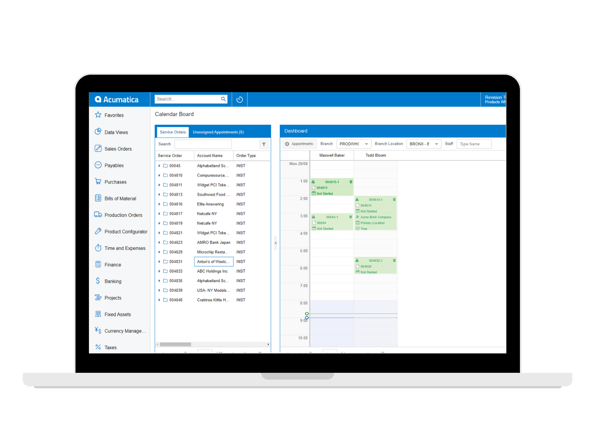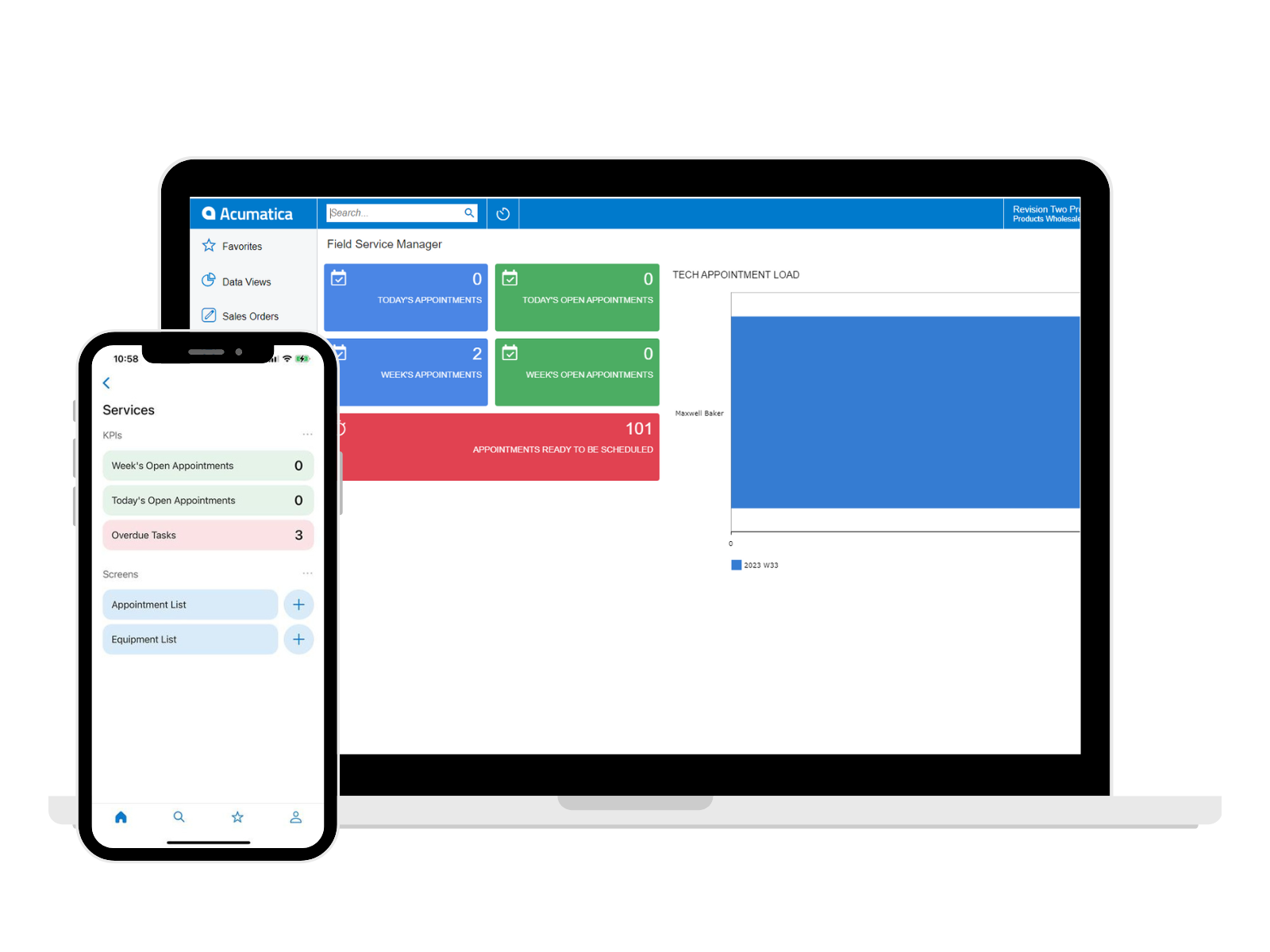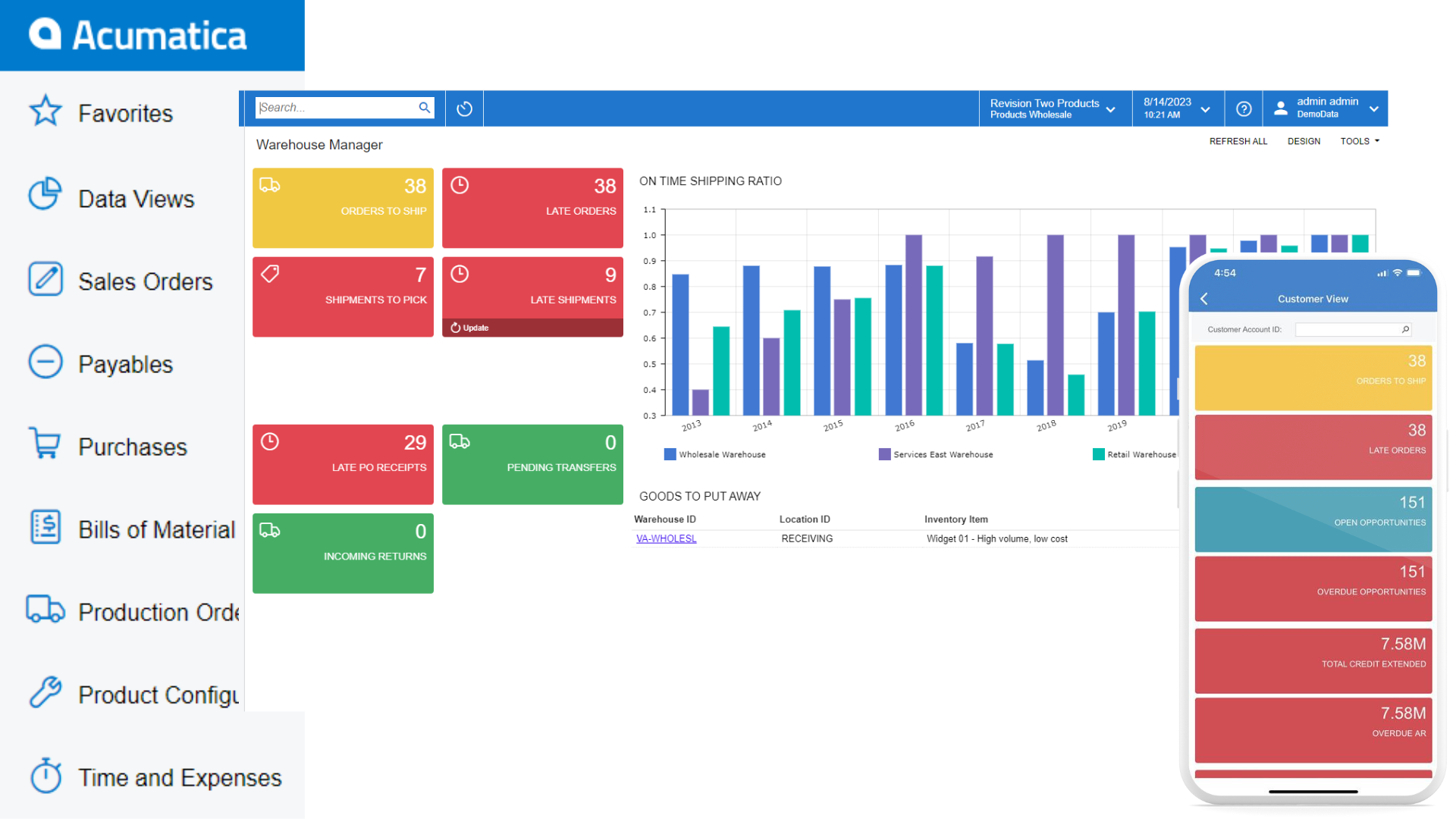5 Benefits of Field Service Management Software that Advance Business
Do you want your business to thrive or just...survive? To thrive in today's environment you primarily need two things to thrive: the right people and...
5 min read
 Kaitlin Nelson
:
Feb 1, 2024 10:15:00 AM
Kaitlin Nelson
:
Feb 1, 2024 10:15:00 AM

Field service management (FSM) software has become an essential tool for businesses that provide on-site services. It helps streamline operations, improve efficiency, and enhance customer satisfaction. With the increasing demand for field solutions, the market is flooded with various options, making it hard to choose the right solution for your business.
To help you make an informed decision, we have compiled a list of the top 5 must-have features for field service management software. These features will not only improve your service optimization but also give you a competitive edge in today's market.
Before we dive into the must-have features, let's first understand why field service management software is crucial in the service industry.
Field service management software automates various tasks, such as scheduling, dispatching, and invoicing, which were previously done manually. This automation not only saves time but also reduces the chances of human error, leading to increased efficiency. FSM software provides real-time visibility into field operations, allowing managers to track the progress of their technicians and make necessary adjustments to optimize their performance.
With field service management software, you can provide your customers with a seamless experience. It allows you to schedule appointments, send automated reminders, and provide real-time updates on the status of their service requests. Moreover, with features like electronic signature capture and mobile payment options, you can make the entire process more convenient for your customers, leading to higher satisfaction rates.
Field service management software provides valuable insights into your business operations, allowing you to identify areas for improvement. With features like real-time tracking and analytics, you can make data-driven decisions to optimize your service delivery and increase profitability. With more accurate financial management and modules like Project Accounting, you can get a granular view of how well projects are performing against their costs and allotted budget. Some FSM solutions have the ability for technicians and back office employees to use mobile devices to communicate and resolve customer issues, all while being documented in a mobile system.
Simplifying your field service operations is easier when you're working with one comprehensive system in place. If you are operating your company across multiple systems and are overwhelmed with spreadsheets, it's unlikely you can access real-time data and it is very likely your resources are stretched too far.
Picking the right FSM solution means condensing your cumbersome systems and eliminating manual processes for your technicians and back-office employees. The key features we suggest your field service management software have are:
Field service companies in particular have a lot of moving parts to the business. Customers call in requesting service, your staff has to stock the trucks to make sure technician's have all the right inventory to solve your customer's problem, the technician has to drive all the way out to the customer site to repair the issue, then the technician has to come all the way back to the office to fill out the paperwork for the job, and at the end of it all you have to bill your customer and track all the information related to that one job. And you're not just doing one job a day.
The complexity of scheduling your technicians so that the right technicians with the appropriate certifications are assigned to correct customers can be challenging and time-consuming without the right tools in place. That's not even taking into account the urgency needs of your clients and the tracking necessary from the minute a problem was reported to the time it's solved or the nature of service contract agreements between each client in your field service operation. Take a look at our key features FSM software should have to run field service operations smoothly.
I cannot stress the importance of having access to real-time information. Being able to respond to your customer demands in a timely manner requires you to have software that can efficiently schedule and dispatch technicians to your customers.

With the right field service management system, businesses can quickly respond to customer requests, assign the most suitable technician for the job, and ensure timely service delivery. In some field service management solutions you're able to use real-time GPS tracking of your technicians. Imagine a customer calls in with an urgent service request. With real-time GPS tracking, you can view which technicians are available in the area and dispatch them to your customer immediately to solve their problem. You can also receive accurate logs for when technicians clock in and out of appointments for audit purposes. Real-time scheduling and dispatching not only improves efficiency but also enhances customer satisfaction by reducing wait times and minimizing service disruptions.
Field service companies are, by definition, out in the field. That means mobile capabilities are even more crucial to the success of your business. Some field service management systems like Acumatica, are accessible out in the field via your phone or tablet. You can update appointments, access customer history, take payments, enter expense receipts, capture signatures, and communicate with the office on the road. Mobile access also enables more efficient and accurate time tracking. It’s as simple as pressing a button to start and end the service appointment. Mobile access ensures that field technicians can continue their work uninterrupted, regardless of their location.
A huge part of a field service technician's day is driving out to the customer and fixing their problem. It's not efficient when you lack insight into your stock, including what's readily available and loaded on your vehicle. By accurately tracking inventory and parts, businesses can ensure that field technicians have the necessary resources to complete their work.
FSM software also helps prevent stockouts, reduces the risk of delays, and improves overall operational efficiency. With inventory management and parts tracking, businesses can optimize their inventory levels, reduce costs, and provide a seamless service experience to their customers.
Every business needs to be able to monitor and track their financial health. In a lot of cases, you might be using a solution like QuickBooks to track your financials. And while QuickBooks has the benefit of being cost-effective, it isn't integrated with your field service management software, leaving your business behind the curve. QuickBooks also allows manual data input which is great for entering or changing data on the fly, but not so great when it comes to data accuracy and security. Systems like Acumatica, allow for secure data entry and real-time information with cloud infrastructure.
Overall, your FSM solution should be able to record journal transactions, run accurate financial reports, and manage financial statements like your balance sheet and P&L. When choosing a field service management software, make sure it offers features like scheduling and dispatching, mobile access, inventory management, invoicing, and analytics and reporting.
While every business needs the base level of financial management, field service companies specifically benefit from project accounting. Getting that extra level of detail to see how well each of your projects is performing allows total visibility into costs for the project, associates costs and income from your project, and effectively manages your budget for the project. This additional layer of analytics lets you see the net margin for each of your projects so you can manage and improve performance at the individual project line.
A business is only as powerful as it's relationships. Field service management software needs to have customer relationship management (CRM) integration capabilities. Integrating a CRM system with field service management software allows businesses to have a complete view of their customers' information, preferences, and service history. This enables companies to provide personalized service, anticipate customer needs, and build stronger relationships. CRM integration also facilitates seamless communication between field technicians and the central office, ensuring that everyone has access to up-to-date customer information.
When choosing a field service management software, make sure it offers features like scheduling and dispatching, mobile access, inventory management, financial management, project accounting, and CRM functionality to keep your customers satisfied. By implementing the right field service management software, you can take your business to new heights and stay ahead of the competition.
Acumatica Cloud ERP is our top field service ERP choice. Acumatica Cloud ERP loops everything into one system - CRM, field service operations, project accounting, inventory, and financials. It's intuitive, modern, and built for growing field service companies. Best of all, Acumatica is a cloud ERP giving your technician's and remote workforce access wherever they are.

If you're interested in learning more about Acumatica Field Service, contact us. We're happy to help guide you in selecting the right field service management solution for your business.

Do you want your business to thrive or just...survive? To thrive in today's environment you primarily need two things to thrive: the right people and...

Manufacturing without MRP is like trying to drive through rain without wipers. You can do it, but not as well as if you had a clear windshield. To...